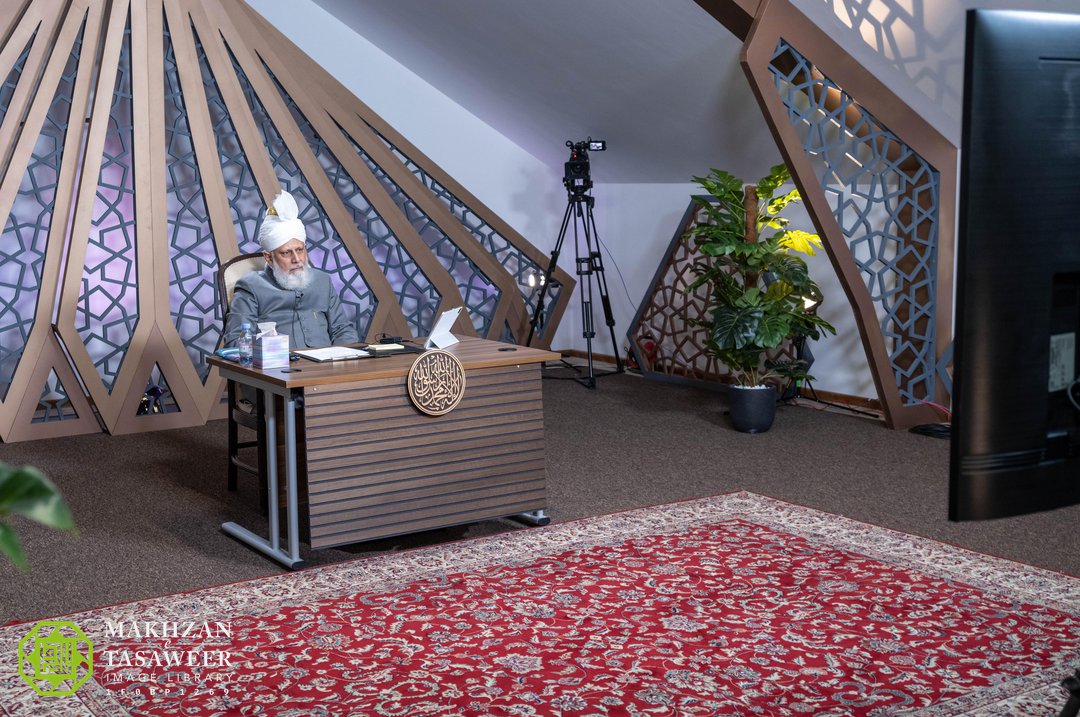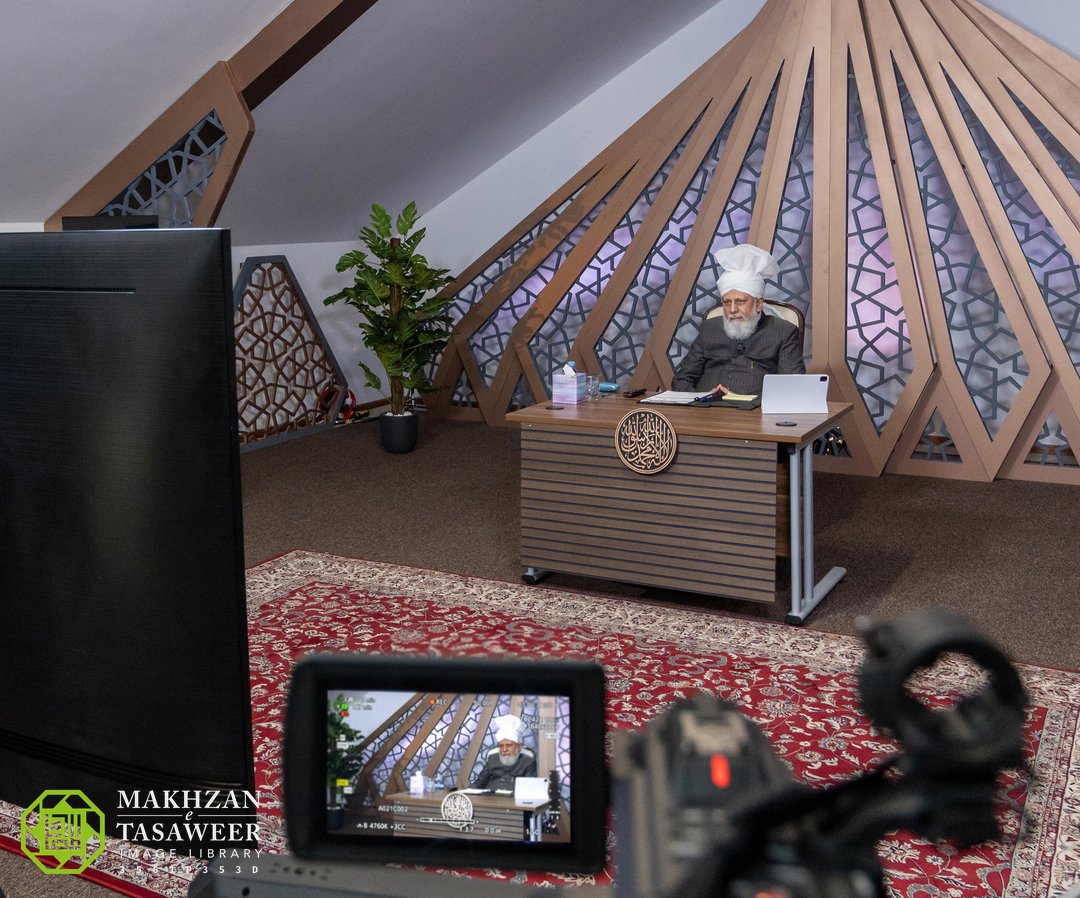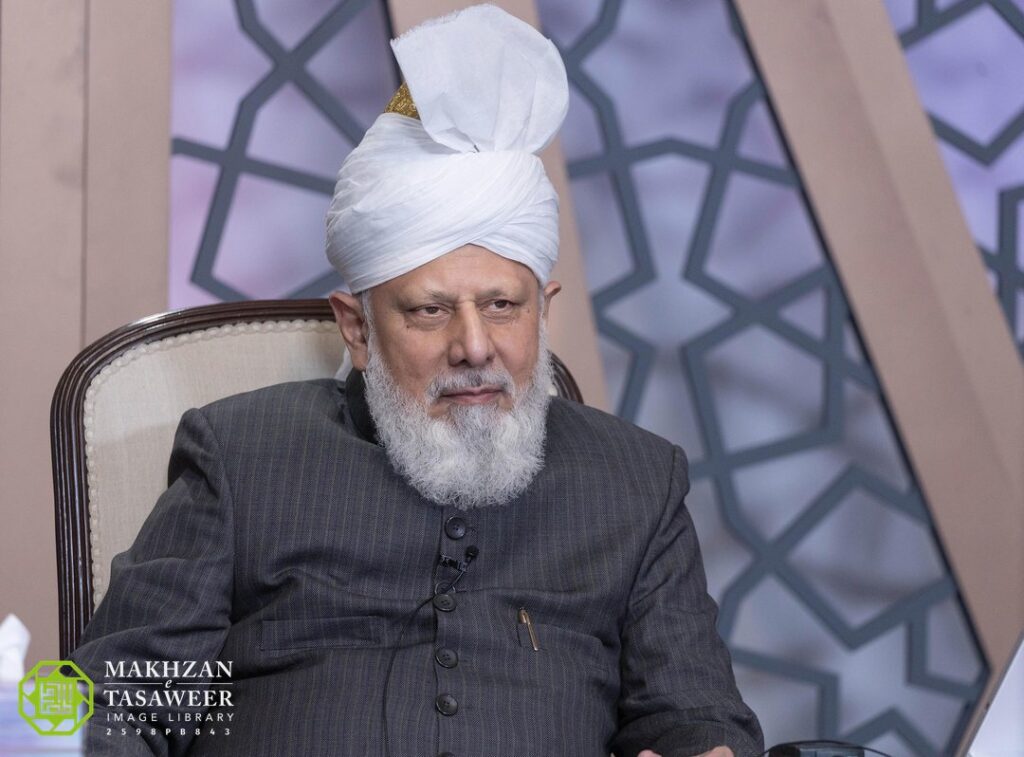
Majlis Khuddamul Ahmadiyya Canada have Honour of Virtual Meeting with World Head of Ahmadiyya Muslim Community
His Holiness gives guidance on a wide array of administrative and religious matters
On 2 October 2021, the World Head of the Ahmadiyya Muslim Community, the Fifth Khalifa (Caliph), His Holiness, Hazrat Mirza Masroor Ahmad held a virtual online meeting with members of Majlis Khuddamul Ahmadiyya (Ahmadiyya Muslim Youth Association) from Canada.
His Holiness presided the meeting from the MTA International Studio in Islamabad, Tilford, whilst the Amila members were gathered in the Aiwan-e-Tahir Hall in Peace Village, Toronto.
After commencing the meeting with a silent prayer, His Holiness spoke to each Amila member individually regarding their duties and responsibilities and they were each able to present a report of their departmental activities and to seek the guidance of His Holiness.
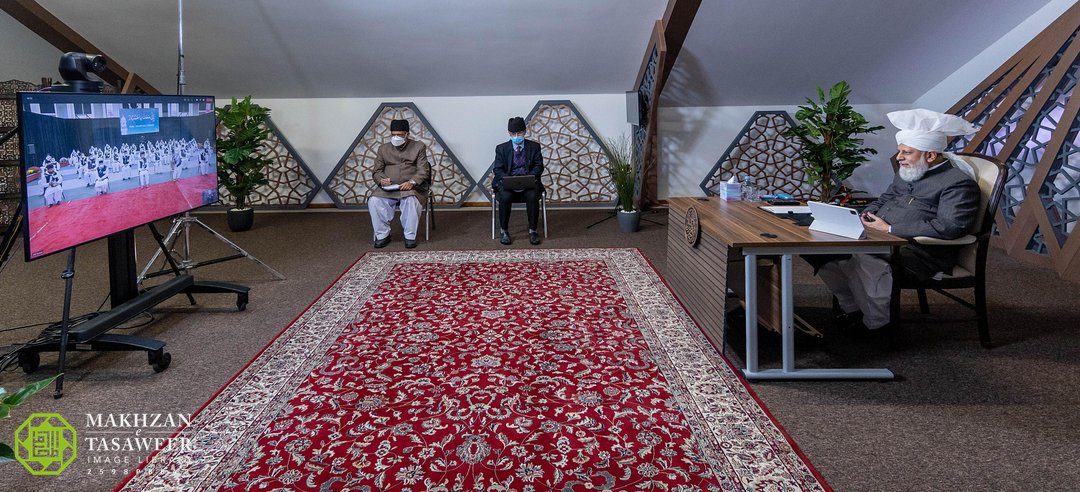 During the meeting, speaking to the Additional Secretary Tarbiyyat, responsible for helping with marital matters, Hazrat Mirza Masroor Ahmad said:
During the meeting, speaking to the Additional Secretary Tarbiyyat, responsible for helping with marital matters, Hazrat Mirza Masroor Ahmad said:
“Give the Khuddam some training on adopting greater patience. This is also a part of Tarbiyyat… People have become engrossed in worldly affairs, and so they are unmindful and unware of their responsibilities. They wish to take their own rights from other people, yet are themselves unwilling to discharge the rights of others. (Within marriage) neither does the woman wish to fulfil the rights of the man, nor does the man wish to give the woman her rights, they are both selfish and have the attitude where they prioritise their own rights over the other party. This is a great ill that has developed.”
His Holiness also gave detailed guidance on how to carry out effective campaigns of propagating the message of Islam (Tabligh).
Speaking to the Mohtamim Tabligh, His Holiness emphasised the importance of adopting appropriate ways and means when conveying the message of Islam.
Hazrat Mirza Masroor Ahmad said:
“With regards to calling people towards God, look at your existing methods and techniques, if they are not providing good enough results then you will have to change your strategy. In the incidents that I am narrating nowadays about the wars that took place (in the early history of Islam), when a commander would come to the realisation that victory could not be achieved through a particular strategy he would make a change and would adopt another strategy through which a better result could be attained. Of course, we are not waging any physical war, but the battle to peacefully propagate the teachings and message of Islam, also requires the ability to adapt. If, on the one hand, you are not getting the required results and you deem it to not be a successful strategy then there is no compulsion upon us to just carry on in the same way and style as before.”
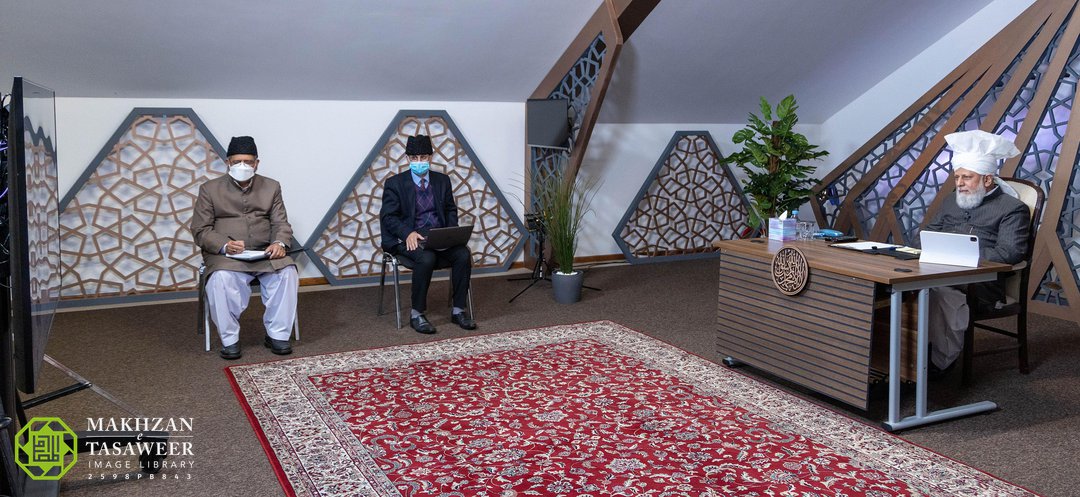
Hazrat Mirza Masroor Ahmad continued:
“Rather, you should come up with and explore new and innovative methods so that you can analyse what the best way is to carry out Tabligh to people through new means and how you can meet and then convince them as well.”
His Holiness also said that in addition to Tabligh aimed at the general public, there is also a need to create teams of people who can specifically cater for the needs and interests of particular ethnic or religious groups as well.
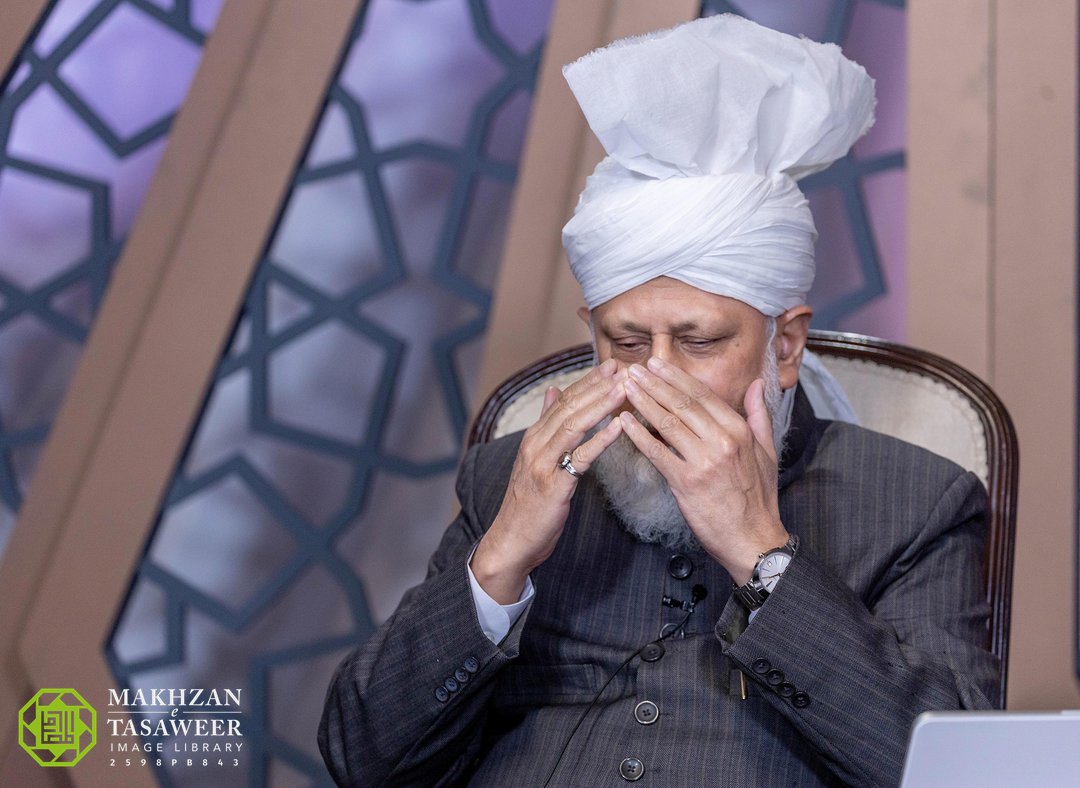
Addressing an issue where some people may feel hesitant or apprehensive about publicly performing Tabligh, Hazrat Mirza Masroor Ahmad said:
“Make friendships, and involve as many people as possible in this effort (to propagate Islam’s teachings). Say to the Khuddam that even if you are not formally involved with Tabligh work as such, you can at least befriend others from outside the Community. Do not be swayed by their influence, rather you must tell them about what faith is and what Islam is. In this way, many people will assist you in this task who are otherwise hesitant to fully engage in Tabligh.”
Speaking to the National Secretary responsible for the moral training of the youth in Canada (Mohtamim Tarbiyyat) His Holiness emphasised the need to focus on ensuring that Khuddam regularly observe the five daily prayers and recite the Holy Quran, describing these two responsibilities as ‘fundamental’.
